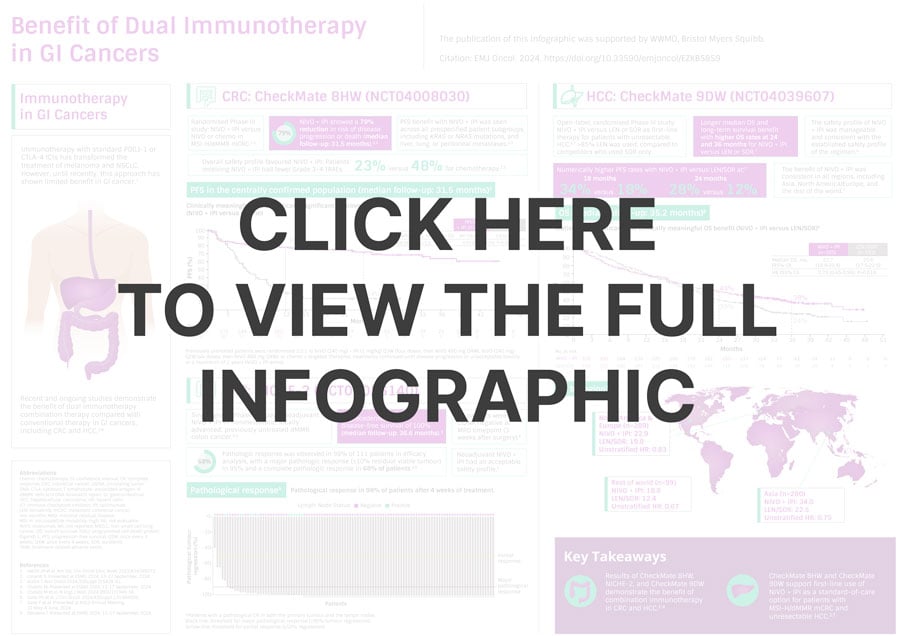The publication of this infographic was supported by WWMO, Bristol Myers Squibb.
![]()
Immunotherapy with standard programmed cell death protein (ligand) 1 (PD(L)-1) or cytotoxic T lymphocyte–associated antigen-4 (CTLA-4) immune checkpoint inhibitors has transformed the treatment of melanoma and non-small cell lung cancer (NSCLC). However, until recently, this approach has shown limited benefit in gastrointestinal cancer.1
This infographic summarises three ongoing studies that demonstrate the benefit of dual immunotherapy combination therapy compared with standard therapy in colorectal cancer (CRC) and hepatocellular carcinoma (HCC):
- CheckMate 8HW showed a 79% reduction in the risk of disease progression or death with a combination of nivolumab plus ipilimumab compared with standard therapy in microsatellite instability-high (MSI-H)/deficient DNA mismatch repair (dMMR) mCRC, with less toxicity.2,3
- NICHE-2 showed an unprecedented 3-year disease-free survival of 100% with neoadjuvant nivolumab plus ipilimumab in previously untreated dMMR colon cancer, with an acceptable safety profile.4,5
- CheckMate 9DW showed improved median overall survival with nivolumab plus ipilimumab versus lenvatinib or sorafenib in untreated unresectable HCC, with a consistent effect across Asia, North America/Europe, and the rest of the world, and a manageable safety profile.6,7
Check out the infographic for more information on these enlightening trials!
References
1. Hecht JR et al. Am Soc Clin Oncol Educ Book. 2023;43:e389072.
2. Lonardi S. ESMO 2024, 13–17 September, 2024.
3. André T. Ann Oncol 2024;35(Suppl 2):S428-81.
4. Chalabi M. ESMO 2024, 13–17 September 2024.
5. Chalabi M et al. N Engl J Med. 2024;390(21):1949-58.
6. Galle PR et al. J Clin Oncol. 2024;42(Suppl 17):LBA4008.
7. Galle P et al. ASCO Annual Meeting; 31 May–4 June, 2024.








